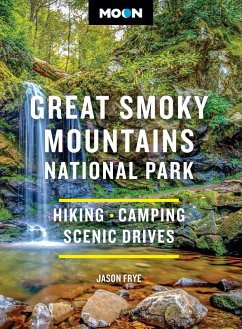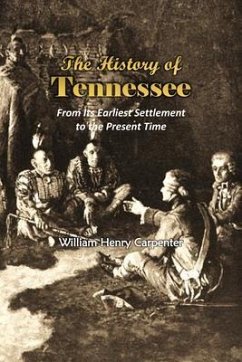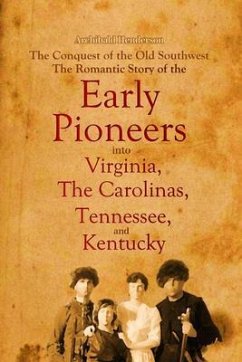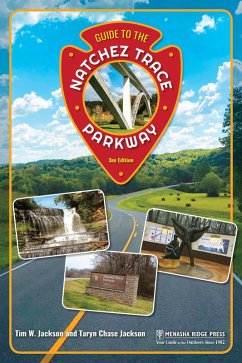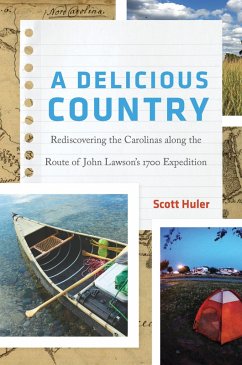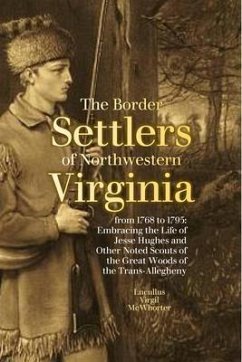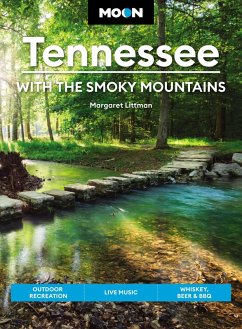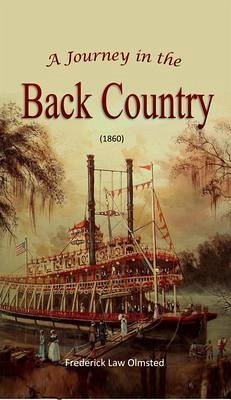
A Journey in the Back Country (1860) (eBook, ePUB)

PAYBACK Punkte
2 °P sammeln!
"A racy account of personal adventure." - New York Tribune, 1860"In 1852 Olmstead was engaged as a special correspondent...he visited the Appalachian areas of Alabama, Tennessee, Georgia, North Carolina, and Virginia...quite interesting reading." -The Times Dispatch (Richmond), April 12, 1953"No book could tell us more satisfactorily what we really want to know about slavery." - Saturday Review, 1860"The most useful and interesting of those books of travel which the author as yet published." -The Athenaeum, 1861Best known as a landscape architect, with Central Park as his most conspicuous achi...
"A racy account of personal adventure." - New York Tribune, 1860
"In 1852 Olmstead was engaged as a special correspondent...he visited the Appalachian areas of Alabama, Tennessee, Georgia, North Carolina, and Virginia...quite interesting reading." -The Times Dispatch (Richmond), April 12, 1953
"No book could tell us more satisfactorily what we really want to know about slavery." - Saturday Review, 1860
"The most useful and interesting of those books of travel which the author as yet published." -The Athenaeum, 1861
Best known as a landscape architect, with Central Park as his most conspicuous achievement, Olmsted was also master of a vigorous pen and a very keen observer of manners and men. Interested in the slave economy, he was commissioned by the New York Daily Times (now The New York Times) to embark on an extensive research journey through the American South and Texas from 1852 to 1857.
His 1860 narrative, "A Journey in the Back Country" describes what he saw in the valley of the lower Mississippi, in the interior cotton districts, in the Piedmont section, and among the mountaineers of the Cumberland plateau during a trip through Mississippi, Alabama, Tennessee, and the back country of the Carolinas and Virginia.
This though published as a separate work, is really the third volume of Mr. Olmsted's treatise on the American Slave States. The first was, "A Journey in the Seaboard Slave States," and the second, "A Journey through Texas."
This third volume, whose purpose was "to obtain and report facts of ordinary life at the South," records what the author saw and heard in the cotton-growing lowlands of the Mississippi, and in the hill-country of what he calls the "Northern South;" and it also gives at great length the general results of his observations, and a statement of his opinions, on American slavery. It is a must read for all who would understand the conditions out of which the Civil War was about to grow.
In addition to the racy account of personal adventure-if that term may be applied to the experience of the writer, on his often perilous and always exciting journey, and the fund of entertaining, illustrative anecdote with which this volume abound-it contains much grave discussion on the moral and political aspects of slavery.
Olmsted shed light on the horrors of slavery, including one harrowing hound-chase of an escaped slave:
"They found the dogs barking up a big cottonwood tree....He sent for an ax, and called out again, saying he would cut the tree to the ground if he didn't come down. There was no reply. He then cut half through the tree on one side, and was beginning on the other, when the negro halloed out that if he would stop he would come down. But the hunter swore he'd make no conditions. When the tree began to totter, the negro slid down the trunk, the dogs springing..."
In the rare power of describing scenery Mr. Olmsted exhibits both grace and facility. In his words we occasionally behold scenes that remind us of the magic of Mr. Cropsey's canvases. Though the staple of this volume is Cotton, and its chief subject Slavery, both of these are so copiously illustrated by incidents rather than arguments, that the volume is an encyclopedia of scenes and anecdotes of life and livers in the Back Country full of humour and raciness.
About the author:
Frederick Law Olmsted was born April 26, 1822 and died August 28, 1903. He was an American landscape architect, journalist, social critic, and public administrator. He is popularly considered to be the father of American landscape architecture.
Also authored:
. The Cotton Kingdom
. A Journey in the Seaboard Slave States
"In 1852 Olmstead was engaged as a special correspondent...he visited the Appalachian areas of Alabama, Tennessee, Georgia, North Carolina, and Virginia...quite interesting reading." -The Times Dispatch (Richmond), April 12, 1953
"No book could tell us more satisfactorily what we really want to know about slavery." - Saturday Review, 1860
"The most useful and interesting of those books of travel which the author as yet published." -The Athenaeum, 1861
Best known as a landscape architect, with Central Park as his most conspicuous achievement, Olmsted was also master of a vigorous pen and a very keen observer of manners and men. Interested in the slave economy, he was commissioned by the New York Daily Times (now The New York Times) to embark on an extensive research journey through the American South and Texas from 1852 to 1857.
His 1860 narrative, "A Journey in the Back Country" describes what he saw in the valley of the lower Mississippi, in the interior cotton districts, in the Piedmont section, and among the mountaineers of the Cumberland plateau during a trip through Mississippi, Alabama, Tennessee, and the back country of the Carolinas and Virginia.
This though published as a separate work, is really the third volume of Mr. Olmsted's treatise on the American Slave States. The first was, "A Journey in the Seaboard Slave States," and the second, "A Journey through Texas."
This third volume, whose purpose was "to obtain and report facts of ordinary life at the South," records what the author saw and heard in the cotton-growing lowlands of the Mississippi, and in the hill-country of what he calls the "Northern South;" and it also gives at great length the general results of his observations, and a statement of his opinions, on American slavery. It is a must read for all who would understand the conditions out of which the Civil War was about to grow.
In addition to the racy account of personal adventure-if that term may be applied to the experience of the writer, on his often perilous and always exciting journey, and the fund of entertaining, illustrative anecdote with which this volume abound-it contains much grave discussion on the moral and political aspects of slavery.
Olmsted shed light on the horrors of slavery, including one harrowing hound-chase of an escaped slave:
"They found the dogs barking up a big cottonwood tree....He sent for an ax, and called out again, saying he would cut the tree to the ground if he didn't come down. There was no reply. He then cut half through the tree on one side, and was beginning on the other, when the negro halloed out that if he would stop he would come down. But the hunter swore he'd make no conditions. When the tree began to totter, the negro slid down the trunk, the dogs springing..."
In the rare power of describing scenery Mr. Olmsted exhibits both grace and facility. In his words we occasionally behold scenes that remind us of the magic of Mr. Cropsey's canvases. Though the staple of this volume is Cotton, and its chief subject Slavery, both of these are so copiously illustrated by incidents rather than arguments, that the volume is an encyclopedia of scenes and anecdotes of life and livers in the Back Country full of humour and raciness.
About the author:
Frederick Law Olmsted was born April 26, 1822 and died August 28, 1903. He was an American landscape architect, journalist, social critic, and public administrator. He is popularly considered to be the father of American landscape architecture.
Also authored:
. The Cotton Kingdom
. A Journey in the Seaboard Slave States
Dieser Download kann aus rechtlichen Gründen nur mit Rechnungsadresse in A, D ausgeliefert werden.





